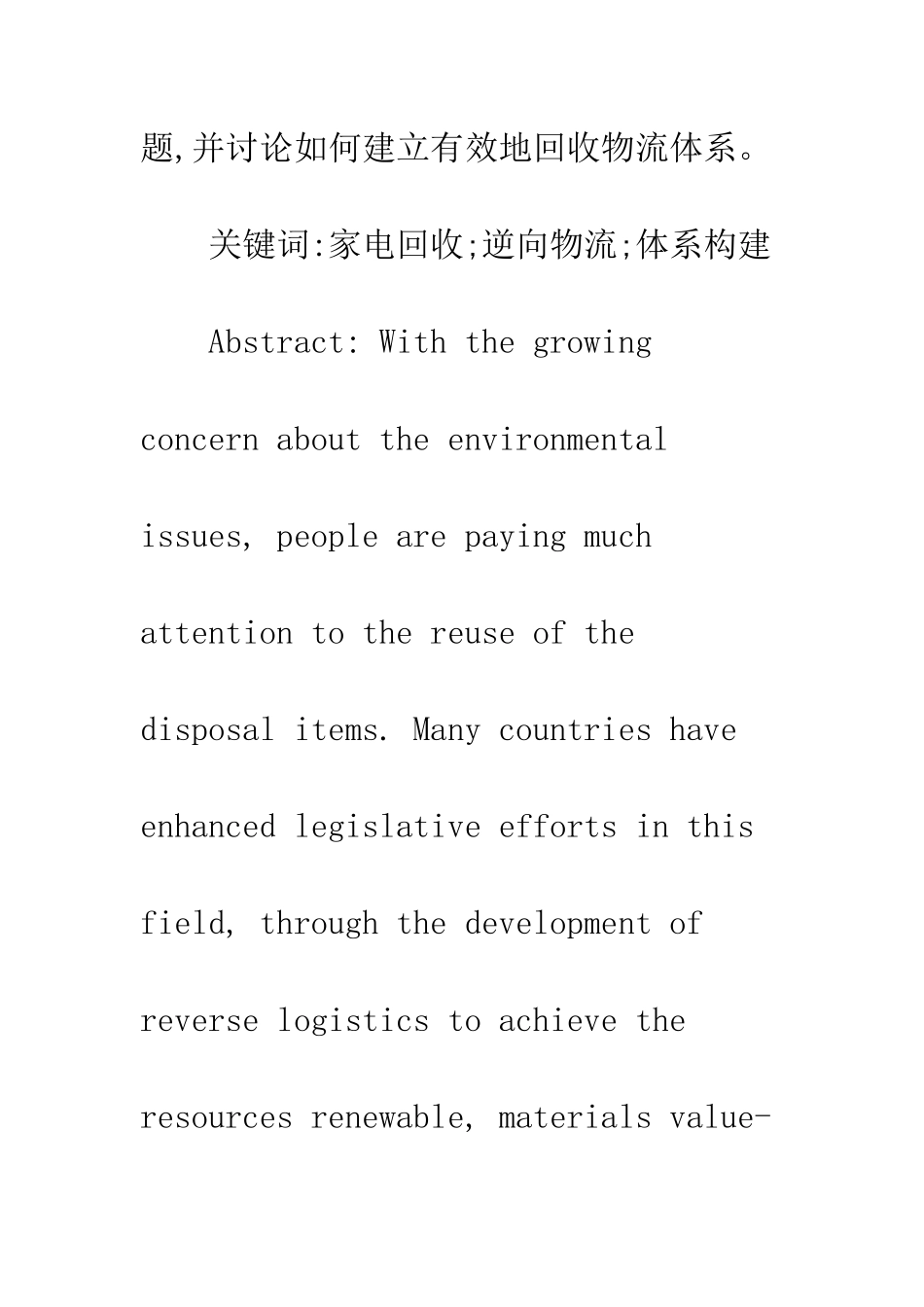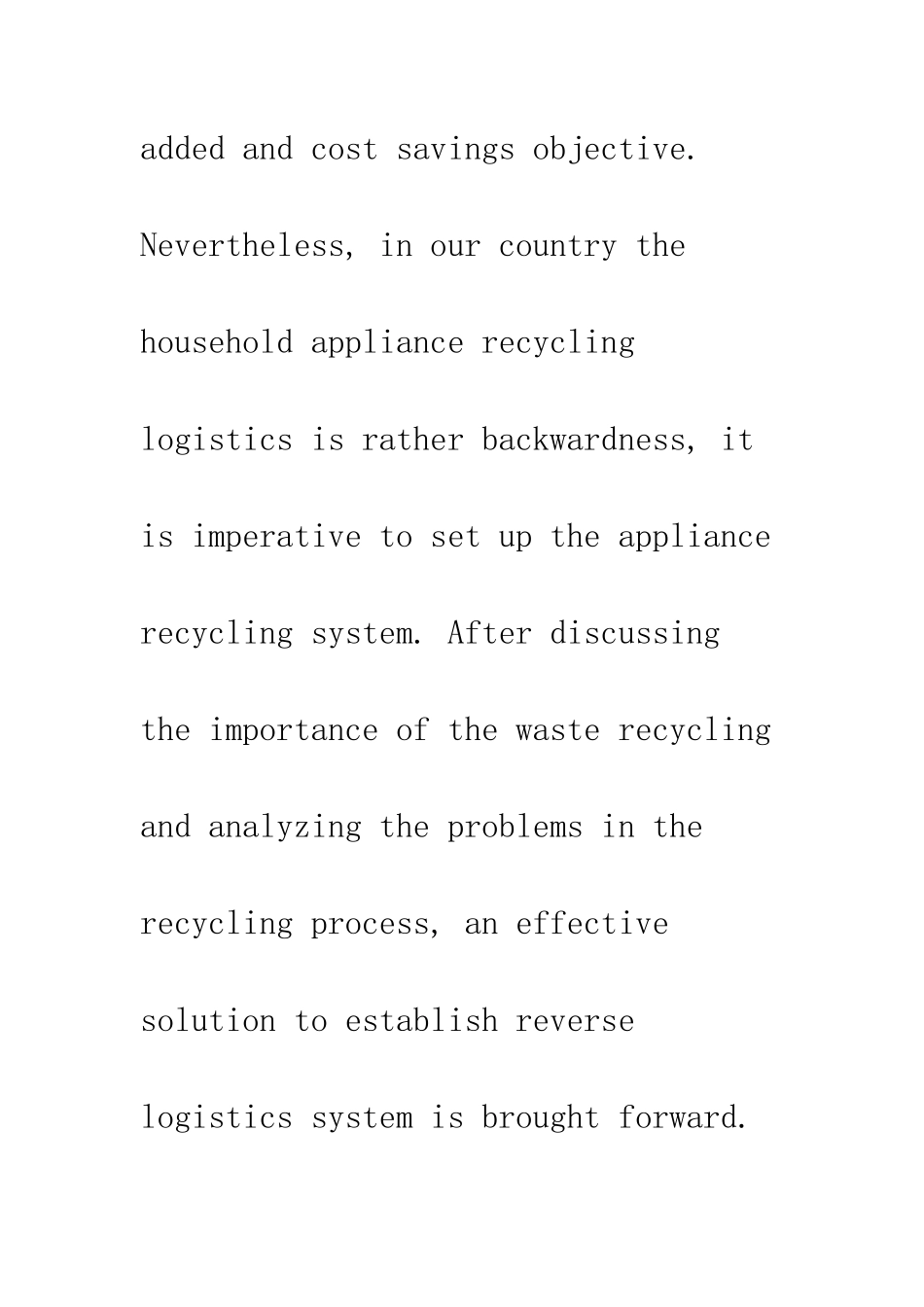我国家电产品回收物流体系构建讨论 摘要:随着社会对环保的日益关注,人们越来越重视废旧物品的重新利用,许多国家也加大了这方面的立法力度,通过进展逆向物流来达到资源再生、物料增值和成本节约的目的。但目前我国在家电产品逆向物流方面仍然比较落后,所以进展家电产品回收物流、构建家电产品逆向物流体系已是刻不容缓。文章从家电产品回收的重要性谈起,分析我国家电回收过程中存在的问题,并讨论如何建立有效地回收物流体系。 关键词:家电回收;逆向物流;体系构建 Abstract: With the growing concern about the environmental issues, people are paying much attention to the reuse of the disposal items. Many countries have enhanced legislative efforts in this field, through the development of reverse logistics to achieve the resources renewable, materials value-added and cost savings objective. Nevertheless, in our country the household appliance recycling logistics is rather backwardness, it is imperative to set up the appliance recycling system. After discussing the importance of the waste recycling and analyzing the problems in the recycling process, an effective solution to establish reverse logistics system is brought forward. Key words: home electric appliance recycling; reverse logistics; system establish 1 构建我国旧家电回收体系的背景 随着科技的进步以及人民生活水平的日益提高,我国居民对家电的消费量也越来越大(如表 1 所示),家电消费已经从单纯地满足日常生活需要转变成提高生活质量的标志。 中国各种家电产品及电子产品仍处于高速增长期,拥有量将在未来几年内急剧膨胀,从 2025 年 2 月 1 日起将“家电下乡”推广到全国,各地实施时间统一暂定为 4 年。连续 4 年在全国农村对彩电、冰箱、洗衣机、手机四类农民需求量大的产品实施“家电下乡”,可实现家电下乡产品销售近亿台,这一政策出台,必定会加速农村家电的淘汰速度,从而废旧家电的垃圾量也将对国内市场带来越来越大的压力。但是目前国内对于废旧家电回收方面,还没有正式出台相关具有强制性的法律。 2 逆向物流理论简述 Stock 最早提出了“逆向物流”这个名词。他在 1992 年给美...


